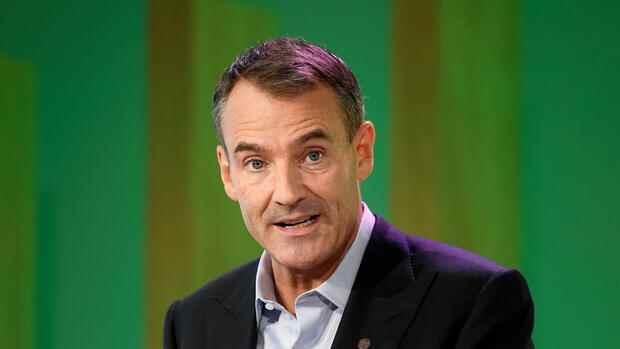The entire oil industry benefits from high profits, which are mainly due to the high oil prices.
(Photo: Reuters)
London Between April and June, the British oil and energy group BP generated its best quarterly results in 14 years. The company’s net profit almost tripled compared to the same period last year to around 8.5 billion dollars. Analysts had expected an average of only $ 6.8 billion. The stock exchange reacted to the flood of profits at BP with an increase of more than four percent.
BP is following the lead of Shell, ExxonMobil, Total and Chevron, all of which have reported huge profits over the past few days thanks to high oil and gas prices.
BP expects prices to remain high and announced new investments in fossil and renewable energy sources. “The world is stuck in an energy trilemma of security risks, high prices and the desire for a low-carbon energy transition,” said BP CEO Bernard Looney. His company wants to help resolve the dilemma.
Like most other members of “Big Oil,” the group of major oil companies, BP is also increasing its dividend and again announcing share buybacks. The payout per share is expected to increase by 10 percent to 6 US cents. The company also plans to buy back $3.5 billion worth of stock over the next three months. In the first half of the year, BP had already given its shareholders a share of the profits from the crisis with a $3.8 billion buyback program.
Top jobs of the day
Find the best jobs now and
be notified by email.
The company “delivers the oil and gas the world needs today while investing to accelerate the energy transition,” Looney said. However, this is exactly what critics of the energy industry dispute: Instead of dampening the price shock caused by the Ukraine war and investing more, the corporations would make high excess profits (windfall profits) and then distribute them to shareholders in the form of dividends and share buybacks. CFO Murray Auchincloss said in February that the company was making so much money that he didn’t know what to do with it.
Around a third of the profits go towards reducing debt
How great the political pressure is for BP is particularly evident in its home country of Great Britain. In July, the conservative government under Prime Minister Boris Johnson introduced a special tax of 25 percent on crisis profits from activities in the North Sea.
The tax revenue of around £5 billion (€6 billion) is intended to help UK consumers who are suffering from soaring energy prices. The average UK household’s energy bill could triple to more than £3,600 this year, according to a new forecast from market analysts Cornwall Insight.
The high profits in the second quarter are not yet included in the new excess profit tax. BP boss Looney did not want to give any specific figures on the expected tax burden, but referred to the pension expenses. According to its own estimates, the company will pay around 800 million dollars in additional taxes for the “windfall tax” by 2025.
At $5.9 billion, BP derived most of its profits from upstream oil production. $3.1 billion came from Gas & Low Carbon Energy.
Looney recently warned that the excess profits tax could put a brake on investment in domestic energy supplies. A statement that was later qualified by British BP boss Louise Kingham.
The oil company made more than $8 billion in profit in the first half of the year.
(Photo: dpa)
BP wants to expand oil and gas production in the North Sea and invest more money in wind power and electric vehicles. In May, BP announced an £18 billion investment program in the UK over the next ten years.
At the same time, the group was able to reduce its net debt by another ten billion dollars to just under 23 billion dollars. BP plans to continue using around a third of its cash flow to reduce its debt. “Now is not the time to relax our discipline,” said CEO Looney. Therefore, despite the current market situation, the group plans to continue with a long-term oil price of $40 per barrel.
More: How CO2 becomes a valuable raw material.


